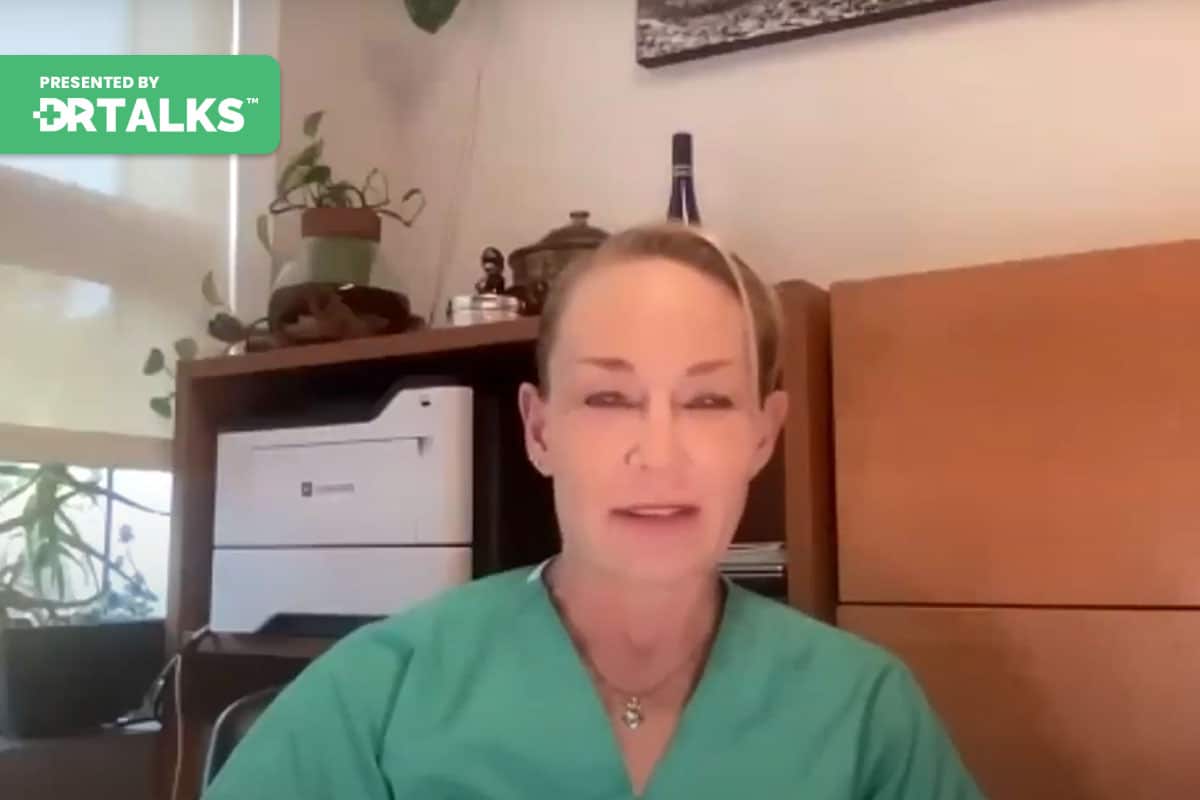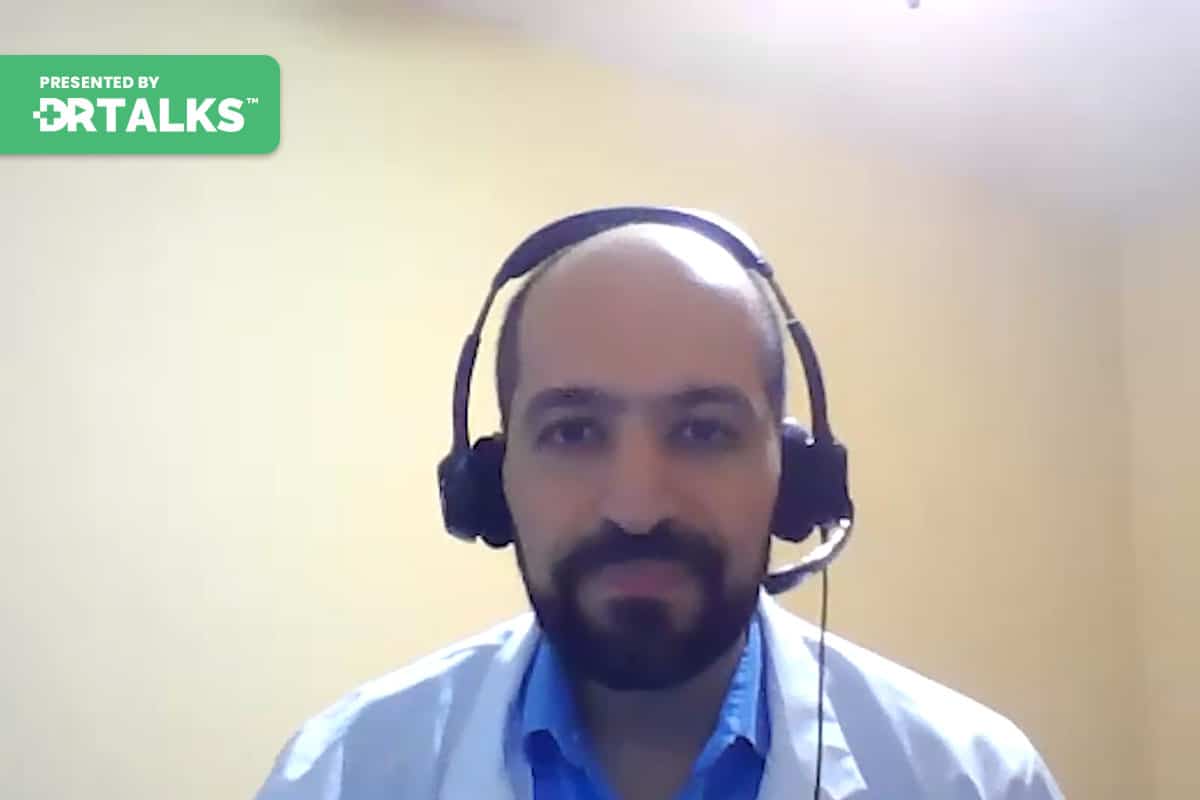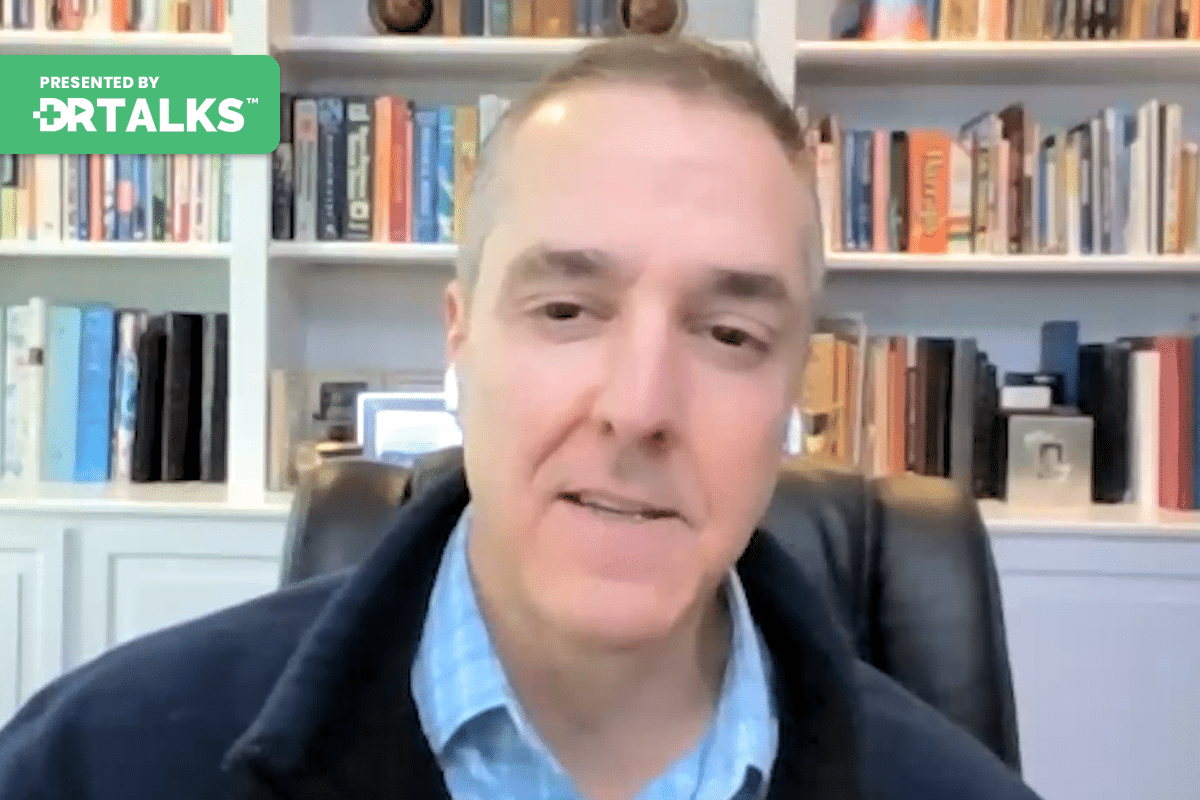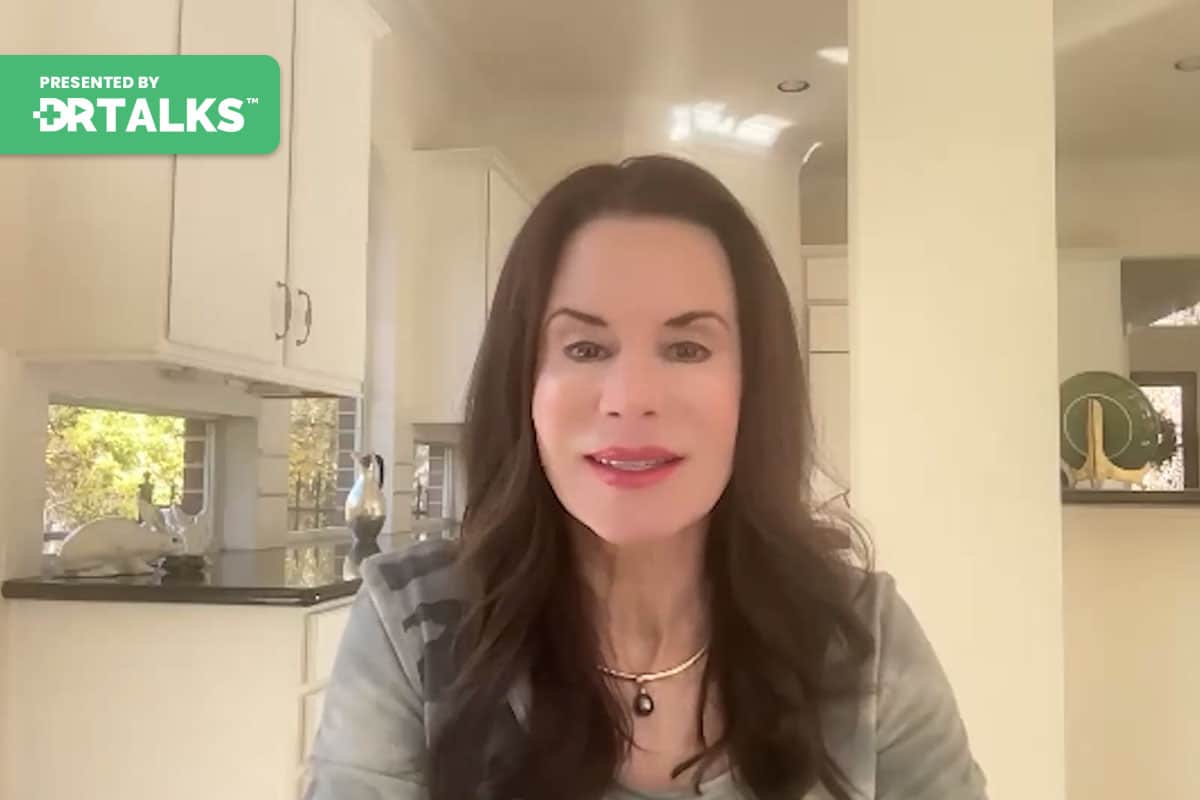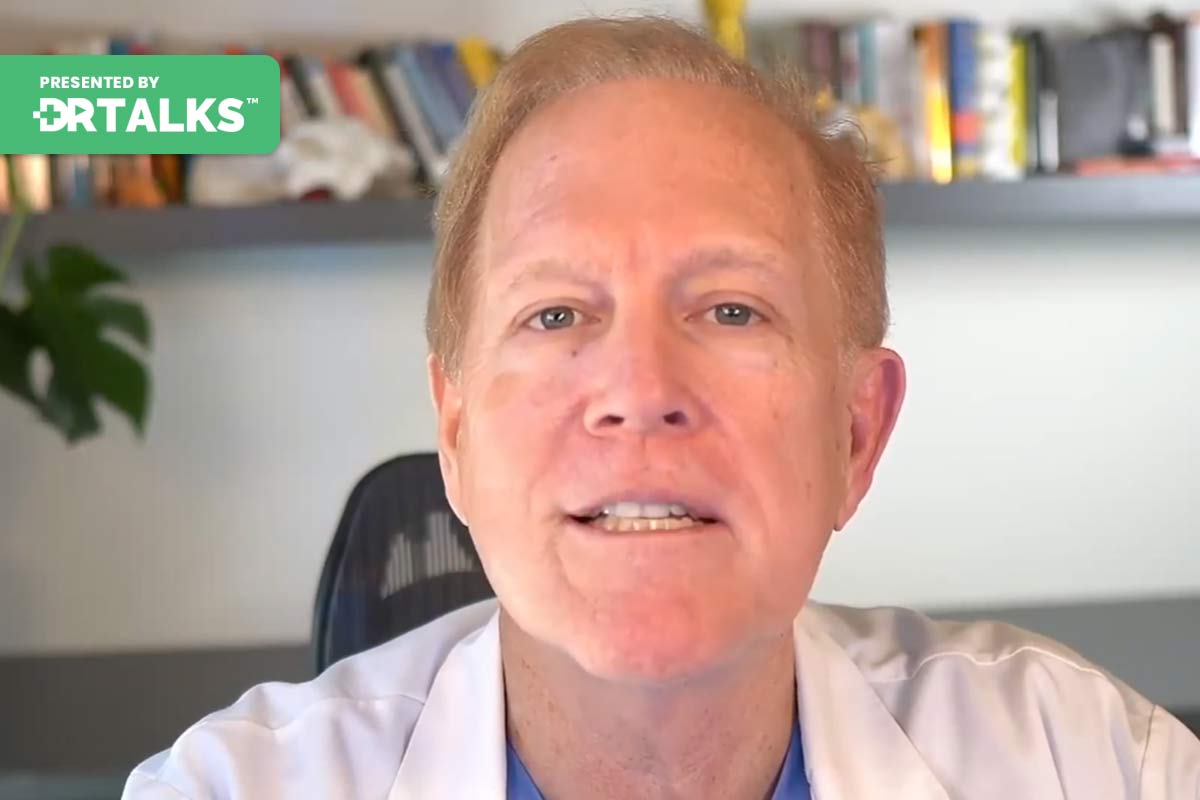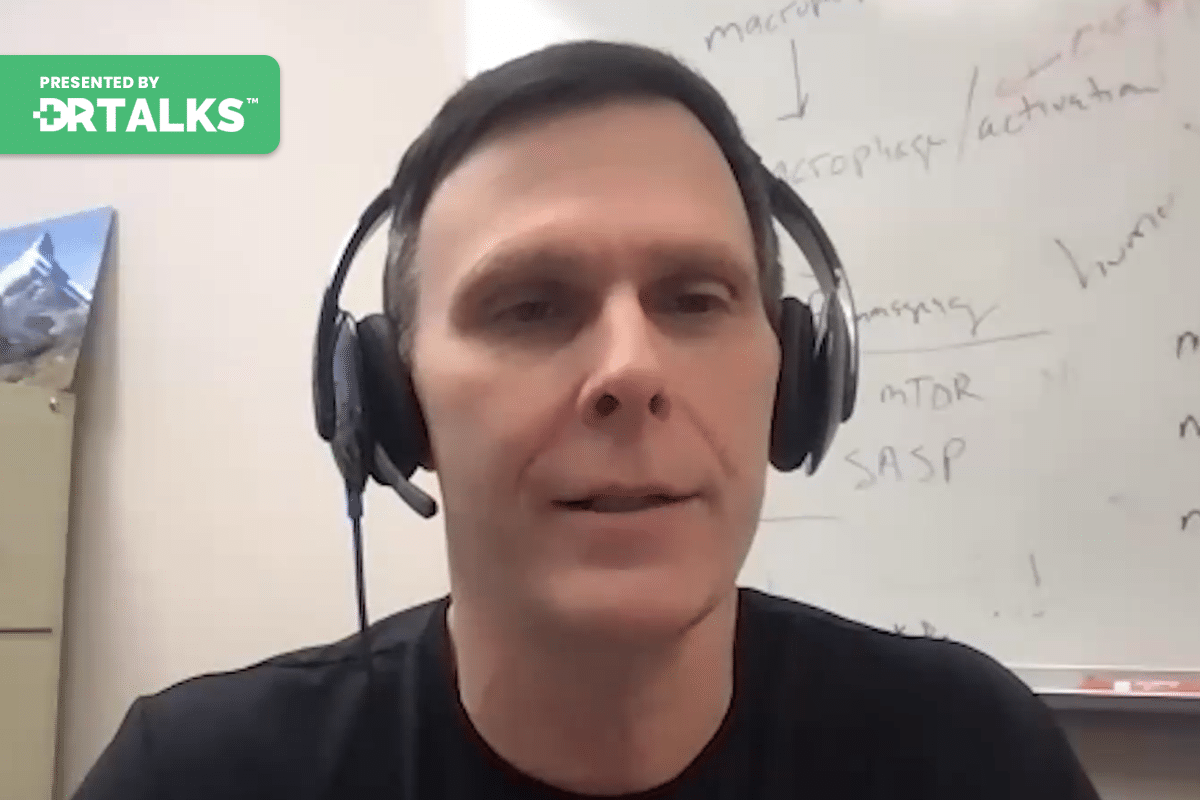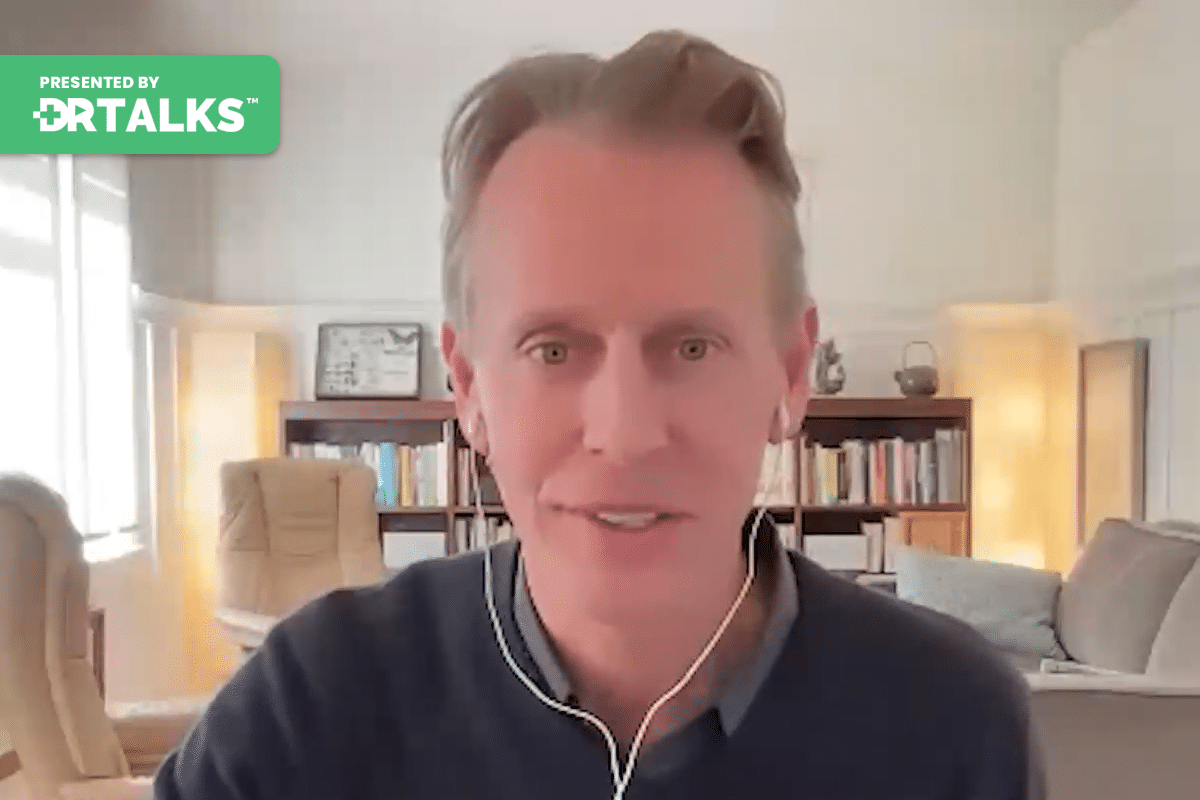Join the discussion below
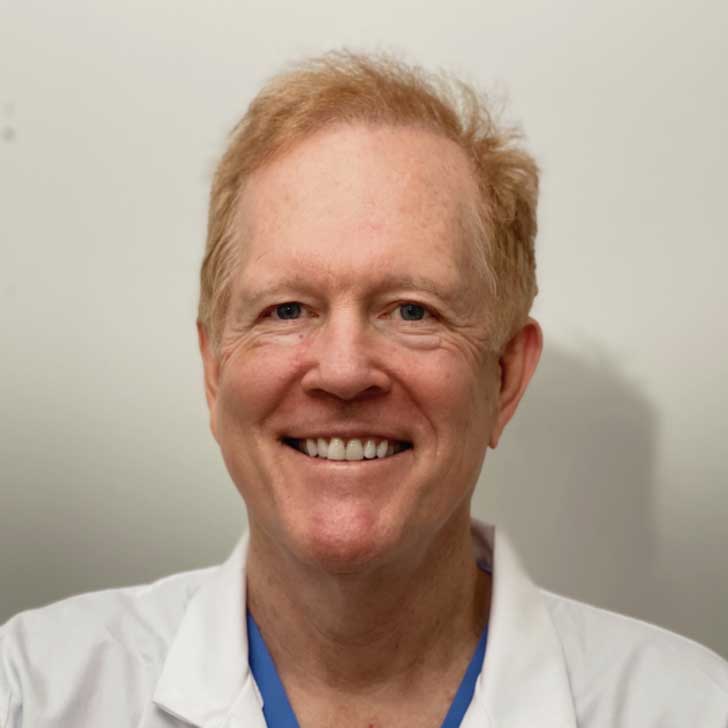
Robert is full Professor at a leading medical school and Chief of Neuroradiology at a large medical network in southern California. In addition to being a practicing physician, he is author of over 200 peer reviewed scientific papers, 32 book chapters and 13 books that are available in six languages. Read More
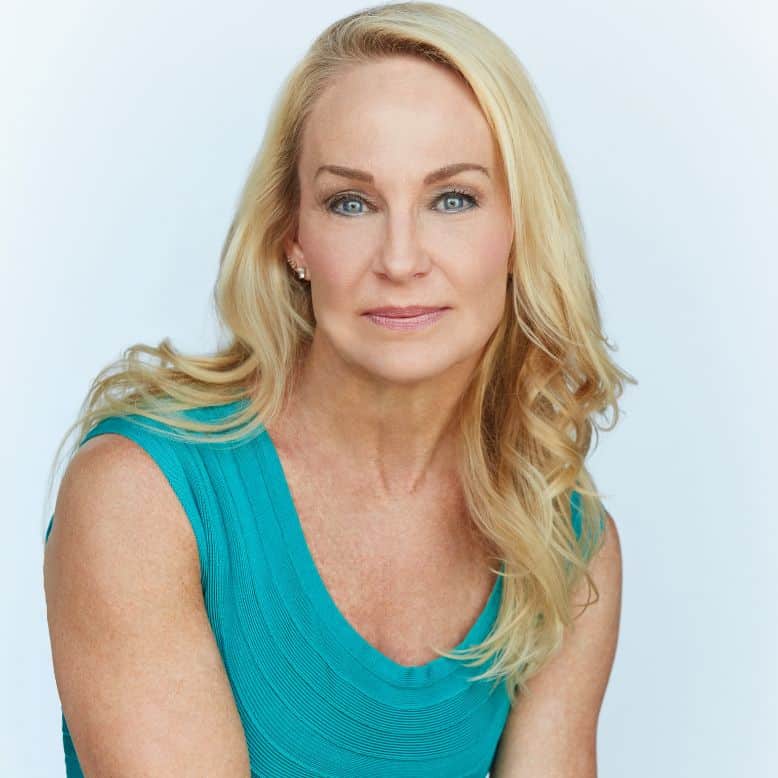
Dr. Sandra Kaufmann began her academic career in the field of cellular biology, earning a Mas-ter’s Degree from the University of Connecticut in Tropical Ecology and Plant Physiology. Turning to medicine, she received her medical degree at the University of Maryland and completed a res-idency and fellowship at Johns Hopkins... Read More
- The seven tenets of cellular aging
- What role does stress and the mind play in aging?
- How to make supplement choices
- How do you create a personalized longevity protocol
Robert Lufkin, MD
Welcome to another episode of the reverse inflammaging summit body and mind longevity medicine and I’m your host Dr. Robert Lufkin today, we get to explore the Kaufman protocol and how it relates to longevity. And we’re joined by Dr. Sandra Kaufmann, who is a best selling author and the creator of this protocol, Sandra, thanks for joining us today.
Sandra Kaufmann, MD
Oh, it’s my absolute pleasure to be here. Thank you for having me.
Robert Lufkin, MD
Tell us a little bit more about your background and how you came to be interested in this fascinating area.
Sandra Kaufmann, MD
So I started out my life in the sciences as a cell biologist. I was actually a tropical Ecologist and plant physiologist fell absolutely in love with cells and cell mechanisms, but pa for my father, he recommended med school so I could actually afford to live. So as a consequence many years later I turned out to be a pediatric anesthesiologist. People always ask how longevity is related to anesthesia and it is, but it’s not. So what I do now is I look at various agents through the lens of a physician as well as through the lens of a cell biologist. But to be more specific, how did I get into longevity? I’m a bit of an athlete. I’m a rock climber, I’m an adventurer and it dawned on me in my mid 40s that unless I sort of figured out how not to age my hobbies were not going to last very long. So I went on this ridiculous quest at the age of 45 to unravel longevity and I decided that your cells age because that’s the basis of who you are. Plus as a cell biologist. And then by manipulating cellular pathways via molecules, which is what we do in anesthesia, you can actually decelerate the process of aging. And now this has sort of become my absolute obsessed hobby and hopefully someday my real future. But for the moment, it’s just a crazy hobby. That’s great.
Robert Lufkin, MD
Well, I can’t before we dive into the protocol and the work you’ve done in that area, maybe you could take a moment. We ask all our experts, this kind of, what is your theory of longevity and aging? Why do, why do we age? Is it just a matter of wear and tear or their quasi programs at work? What’s what’s going on? How do you conceive of it?
Sandra Kaufmann, MD
Oh, excellent question. So I was also an environment or an evolutionary biologist at some point in my life and I think that you age because after you reproduce and raise kids, there’s nothing forcing your body to live any longer. It’s not genetically programmed. So as a consequence of that sells default and they start aging. And if you look at the different categories of aging, which we will get into momentarily. There’s different reasons for things. There’s nutritional deficiencies. There’s pathway failures, there’s a myriad of issues that go on. And I think it’s all driven by failure of allure of evolution to need us after we raise our Children.
Robert Lufkin, MD
So yeah sort of and then is it that programs go on that like Sam and I guess in the famous example they swim up the river to spawn and then within 24 or 48 hours after that they immediately die through some sort of program process. Is that what’s going on with us or is it a combination of wear and tear or what’s happening beyond our reproductive years? I guess that results in in our our dying
Sandra Kaufmann, MD
it’s a combination of things depending on how you sort of look at it. For as one example as you get older, most of your proteins around yourself get like oscillated as an example where they get oxidized and we have some mechanisms to alter that but not enough. So if you look at your proteins oh over the course of time they become more and more disabled. Therefore your cell can’t function the way it’s supposed to. Therefore if you take all of the proteins and sort of throw them in the same. I’m falling apart category. Your cell just can’t function over the course of time. Your D. N. A. Falls apart everything sort of falls apart and so there’s just no impetus for it not to fall apart. You know as an example you’ve got four DNA repair mechanisms and when you’re young they are very active and as you get older they just aren’t because they themselves are proteins and proteins get destroyed over time. So I mean it’s a multifactorial problem just based on I guess you can all you can narrow it down to wear and tear but I think it’s more complex than that.
Robert Lufkin, MD
Yeah certainly yeah and and some cells in our body don’t experience wear and tear like the germline cells and and all and and so yeah it’s fascinating. What are those repair processes or how does that work?
Sandra Kaufmann, MD
Well we can skip to that if you want. I mean
Robert Lufkin, MD
No let’s take it in the order that you’d like before we get in the repair processes. Do you want to talk about the seven tenants of cellular aging? Is that a good launching off point or we can build up to that?
Sandra Kaufmann, MD
Yeah I think it makes a lot of sense and I can sort of breathe through this reasonably quickly but I think it gives people an idea of exactly why cells age and how you can group things together and there’s many ways of looking at this. Everyone knows, you know there’s people can think of talk about the nine hallmarks of aging. You know someone has a list of 13 of them. I think seven is just an easier number to remember and it’s all about sort of like putting them in different categories. So again 7 tenants of aging. I start with 10 at one which is D. N. A. Alterations. So things go wrong in your D. N. A. So we all know telomeres get shorter as cells reproduce. So that’s a problem. And we’ve got epigenetic modification that happens over the course of time which is a problem. We also have D. N. A. Structural failure that occurs. So all of those things negatively affect your D. N. A. and I would cluster them in in tenant one tenant to is mitochondrial failure. Every organism has to have energy. Energy comes from the mitochondria as we know. And mitochondrial failed for very specific reasons. The big one of course after the age of 40 usually is an N. A. D. Deficiency.
So there’s a whole market of course with that and that’s a whole big deal that’s blowing up right now but there’s all sorts of things in the middle for example the mitochondrial transition poor fails over the course of time and that causes cell damage. Of course Free radical scavengers came to speak today. Free radical scavengers are a big deal and your endogenous system to defeat those fail over the course of time. So in your mitochondria alone there’s probably six or seven different reasons that they fail. Option three is pathways their innumerable pathways that affect aging in the body. I like to think about the big three because you start with a certain ones. There’s seven millions cartoons that control cellular homeostasis 13 and six are specifically associated with longevity. And we know that as you get older the genes don’t make the proteins which then can’t affect cellular change and and and and keeping yourself stable. Everyone knows about certain one right? That’s why we’re on resveratrol patera still being. But sir three is actually a huge deal and because it runs your mitochondria and by the time you are 30 sir three starts failing and by the time you’re 60 it’s abysmal. So these are the things that are very very important to sort of control as you get older. On top of your search to in the second big pathway is the Mp kinase pathway. This of course measures how much energy you have and it switches your metabolism on and off to sort of control things. And then of course there’s the notorious m tor pathway and I know you’re a big rap a mission backer. So that’s a whole other discussion but that all falls into tenant three, tenet four is what I call quality control and this is basically checking your widgets as if your cell as a factory. So as I mentioned before, there are four DNA repair mechanisms.
There’s two for single strand and two for double strap and then there’s mismatch repair and over the course of time your body is less able to repair DNA unfortunately and in every cell every day you have up to 10 to the fourth errors. So if you don’t fix them you’re more likely to have bad cells either cancerous cells, senescent cells, all sorts of cellular problems. But unfortunately our ability to fix them fails over time. There’s also protein repair issues, right? This has led to the conversation about chaperones and the ups system and how we recycle proteins that have gone awry. And then of course autophagy falls into this category because anytime your D. N. A. Or your proteins are not going so well you recycle them so that you can make new ones. So that’s category four, Category five is what I call the security or your inflammatory system. So when you are young, your immune system keeps you nice and healthy, keeps uh you know foreign bodies away and it keeps your bad cells sort of under control. But as you get older it fails. So you have more suggest themselves, you have more cancer risk. You’re unable to fight infection and you become horribly inflamed over time which of course is inflammation, which of course is why you guys are having this conference category six I call individual self requirements. It’s the recognition that all cells are not equal red cell obviously it has different needs in a liver cell or a brain cell and it’s the idea that we need to get rid of senescent cells and we need to sort of keep track and take care of our stem cells.
And then Category seven is what I call waste management. This is basically like a shin issues. Glucose is horribly bad for you and and and all of the sugars are in general. And it destroys your tissues over the course of time and it’s something we need to control. And then there’s the accumulation of like profusion, which is garbage within your cell and log the cells that you really just can’t get rid of in your brain or brain cells specifically don’t know what to do with accumulates over time and causes brain issues anyway. So in a very large nutshell, those are the seven tenets of aging.
Robert Lufkin, MD
Yeah, there’s so many there to deal with. What is the relative you mentioned in inflammation, inflammaging? What is the relative role of inflammation or is it 1/7 or how do these interact? It seems like so many different, completely different processes.
Sandra Kaufmann, MD
Oh, the excellent point now, I think it’s huge. Which is why we have to organize it. And in some way to sort of get an idea, I think it depends on the individual. I think that for some people, inflammation is absolutely priority number number one. On the other hand, if you have a huge family history of cancer or diabetes or some other concomitant medical issue. Other other categories are going to be more important. So I think it’s just very individualized And when you create your personal protocol. This is something that you have to identify. So this is how individual longevity programs are sort of built the identification of what is the worst category for you.
Robert Lufkin, MD
So they’re basically all these all these different factors that past reproductive age begin to start failing. Different mechanisms, repair mechanisms and other things and the damage and other factors accumulate over time and eventually lead to our aging then. And what age do you think it really starts? I mean how is it like at the end of reproductive age or what when do people start aging when we start worrying about the moment you’re born?
Sandra Kaufmann, MD
To be perfectly honest. But physiologic age on average I think it’s about 35. However different systems fail earlier versus later. So for example your kidney function, your G. F. R. Starts going down by the time you’re 18. So that’s that’s incredible right levels. As I said before sir, three starts dropping by the time you’re 30. That’s huge, huge. But the real things that people seem to notice symptomatically of course women in menopause that’s a huge sign of aging. Right? And it generally happens roughly in the same period of time for people. And I think that’s sort of like the big canary in the coal mine. My mitochondria aren’t good enough. My ovaries aren’t good enough. It’s the first full system to fail. Other people don’t notice age until they have low energy levels or back pain or they’re squinting in dark restaurants to read, you know, very small writing on menus. But I think aging gets noticed at different ages by different people.
Robert Lufkin, MD
But I actually think that it really starts between probably 32 and 35. Well, it seems like all these things then build up over time. The failure of these repair mechanisms as you so beautifully explained. One question I always get is these this damage accumulates over time and everything starts wearing out, you know, in our bodies. We’re all familiar with the phenotype of aging. Yet the events that determine our longevity are specific. You know, number one causes a heart attack and a stroke and cancer and Alzheimer’s disease. So it’s almost like aging causes this gradual generalized failure assistance throughout our body. Yet longevity is determined by these, you know, 3 to 5 diseases that, you know, don’t necessarily come as a result of failure repair mechanisms or maybe they do. What’s your take on that?
Sandra Kaufmann, MD
So, I think that’s the difference between longevity uh, and health span. Right? So health span is how long can you live without a disease? Right? Longevity is how long you gonna live in total? And I think people I’m afraid of longevity because who wants to be 104, you know, tricked in a wheelchair that just sounds absolutely miserable. But I think that the diseases that you mentioned are the end product of cellular failure, right? We know that cardiovascular disease is a combination of lipid accumulation, inflammatory issues, failure to clear it. I mean there’s many, many contributions for self failure that ultimately lead to these diseases. Like all the neurologic diseases of course, your brain has a, you know, uses more glucose than any other organ. So it has huge location issues. It uses more oxygen, right? So it has issues there and it has very little ability to actually repair itself. So if you have a family history of neurologic disease, uh you know, we just need to address those specific tenants. In addition, most of the neurological diseases actually have failure of protein repair mechanisms. So, you know, theoretically if you increase the ability to repair proteins, you know, relative risk goes down in terms of neurologic disease. So there’s many things you can do because I think it’s not random. I think it’s just all development is the end stage of self failure.
Robert Lufkin, MD
So all these factors happen in aging then. And as we get older, what 1 emphasis of this course is on the role that the mind plays in longevity. What do you think the role of stress and the mind plays in this area, if at all.
Sandra Kaufmann, MD
Well, I think it has a huge event. So, number one people have to adopt the idea that they’re not old, saying that you are old and acting like you are old makes you old, right? If you feel young and you’re planning on living a full healthy life, I think people just do better in general. Having a fantastic outlook also forces you to do things like exercise as an example is hugely important to longevity. I’m actually engaging right now. I’m writing a third book on exercise physiology with an ex olympic athlete on the effective exercise for longevity and health because it’s so absolutely crucial. But if you’ve decided that you’re old and decrepit, you’re not going to go exercise and therefore it sort of begets itself. Right. I mean, additional it’s just a positive attitude will absolutely be helpful. Can you positive attitude your way out of diabetes? Probably not. But you can certainly mitigate it perhaps by being more functional and therefore, you know, using up more glucose and blah blah blah blah and helping your yourself sort of functionally.
Robert Lufkin, MD
Before you talked about the idea of all these all these different hallmarks of aging. It’s complex. There’s so many different things. And then you alluded to the value of a personalized program and how that can really make a difference in anti aging, Could you speak to that?
Sandra Kaufmann, MD
Sure. So when I was sort of trying to figure all of this out and I rearrange or arranged the categories of aging I found it extraordinarily frustrating that. Okay now we know what’s wrong? How do we fix it? And I was sort of waiting through millions of articles it would talk about a specific molecular agent and how well it did in any one specific category. So I created it started out as just a big chart and then with like pluses and minuses and then it became a rating system. So now what I do is any agent that we talked about in terms of longevity. I put it through the ring of every scientific article I can possibly find. And does agent X. Help in all of the different categories. And if it does absolutely nothing for example in tenant one for your D. N. A. It would get a zero.
If there was evidence that it did something in theory or in culture or in a test tube it would get a one if it was evidence to be beneficial in some sort of model that wasn’t a human rodent dog etcetera it would get a two. And if there was evidence for humans it would get a three. So now what I do is every agent I think I’m up to 48 of them comes with a seven digit rating number that tells you exactly what it does in each tenant of aging and how efficacious it is so you can build number grids to determine how well you’re combating aging in each of the seven tenants. And if someone is completely healthy, I would argue that all, all the points at the bottom when you add them up, should be roughly equivalent. And if you have a disease propensity where one category is going to be more significant, you put more points in that category. So that’s how you sort of individualize your protocol.
Robert Lufkin, MD
Yeah. I love the way that you add the scoring system to the various interventions across one axis. And then I didn’t understand. I didn’t follow how then do you or what tests do you use to assess the individual basically for the metrics of the individual where they are and their biological age or their, you know, their disease states in order. So you know which supplements to apply. How is that done?
Sandra Kaufmann, MD
So if there’s a laboratory test for any of the agents, obviously we’re going to do that. Category seven is the easiest, right? Because its location. So we’re looking at, you know, hemoglobin a one c we’re looking at family history of diabetes. We’re looking at application scores, all of that sort of thing. So if you have a high requirement in that category, then we need to max out points in that particular category. Some of these categories have no specific measurements. It just becomes sort of family history and personal history. So for example, in your mitochondria we don’t have a whole lot of test to tell us how great your mitochondria, I mean, we could do sell biopsies, but I don’t think anyone really wants us to do that. But if you take someone’s history and they have very low energy and that’s basically a complaint that I get from any woman over the age of 40, I can’t keep up with my kids, I’m exhausted. It’s a mitochondrial failure. So we add points in the mitochondrial category. So a lot of its laws of its history and some of its lab studies. So it’s just multifactorial.
Robert Lufkin, MD
Yeah. And so you mentioned before the role that exercise can play in longevity and helping out in addition to supplementation, you mentioned, we mentioned stress. What about sleep? Is that important factor?
Sandra Kaufmann, MD
Also, sleep is incredibly important. And it’s sort of a negative cycle. So what happens is as you get older people complain that they can’t sleep and there’s many reasons that people can’t sleep. But from a cellular perspective, sir, to ins control your circadian rhythms and your situations go down over the course of time and of course, ruins are an age dependent. So unless you augment your protocol with needs and some sort of a certain an activator, you’re not going to sleep. Right? The problem with not sleeping is that 30% of your proteins are actually made while you are sleeping. So if you don’t sleep, you’re not gonna make the proteins and therefore going to sleep even less. And it’s just this negative cycle. But if you can get yourself to sleep either naturally or via supplementation, then you can make the proteins and then it’s a positive spiral. So sleep is absolutely crucial.
Robert Lufkin, MD
You mentioned, since we’re talking about cartoons and N. A. D precursors, you alluded to the recent FDA ruling that came out a couple of days ago about N. A. D. Supplements and how that’s going to affect that. Could you maybe just tell our audience what the ruling was and how you think it’s going to affect the N. M. N. And R. Space?
Sandra Kaufmann, MD
Well, from what I could gather, they’ve just directed it at N. M. N. And decided that it’s not going to be a supplement, theoretically it should be a medication they did not talk about N. R. As far as I can tell. So I don’t know how long it’s going to take for that to filter down into reality. But I will tell you that I just bought a boatload of N. M. N. just to have it on hand until the whole thing gets sorted out. And I also bought more stock in Chromadex, just in case I really don’t know how the whole thing is going to play out. It is so important for people not to be deficient in an I. D. That something will work out that we all have it will be available to us in some form. It’s hard to hard to guess at this.
Robert Lufkin, MD
Yeah. Just for our audience these are N. A. D. Supplements or precursors and and and nicotinamide mononucleotide. And our nicotine ribonucleotide I believe.
Sandra Kaufmann, MD
Oxide. Yeah.
Robert Lufkin, MD
Oxide. Yeah. And the FDA ruling was just that they would be classified as a drug rather than a supplement. So as you say, presumably N. M. N. Which is the only one the FDA mentioned would still be available but maybe through prescription or some type of FDA regulation which will certainly drive up the cost. I got a question here, what is the evidence that that N. A. D. Or N. N. And supplements support mitochondrial health there? What’s the most compelling study we can quote for people?
Sandra Kaufmann, MD
In terms of a specific study, it’s kind of hard to say but I can tell you that any D. Does four things in your cells that are absolutely crucial. So number one, it’s part of the electron transport chain. It’s part of complex one and it shuttles proton. So if you are N. A. D deficient you’re by default not gonna make that much energy. Number two it is a co factor force or to an activation. So without it your situations don’t get activated and all of your cellular homeostasis is sort of in a disarray number three you actually use it in DNA repair mechanisms as part of the P. A. R. P. Uh nucleotide repair system. So if you don’t have any I. D. On hand you’re not going to repair your D. N. A. And your risk of cancer or senescent cells escalates. And N. A. D. Is also used as a communication device in your cell between your nucleus and your mitochondria. That tells your nucleus about how much energy levels you have. So essentially if you are in a. D deficient your entire cellular mechanisms are going to fail. I don’t know that’s in one particular study but you can look at individual studies and identify that.
Robert Lufkin, MD
And I guess the challenges I’ve heard I’ve heard people who do NAD Testing talk about there’s there’s a lot of there’s a challenge in finding out and determining what our normal levels and bio availability and because you’ve got to get it in the cell you’ve got to get it in the cells? It’s not a matter of necessarily just taking the pill and and and all but the challenge really is are we delivering it? And is it helped? I don’t think there’s any doubt that NAD is important in our bodies. It’s sort of like fossil lipids are important but I can’t take a fossil lipid pill. And I mean it won’t get you know it won’t be delivered and be bio available. But yeah that’s a whole conversation I guess with N. A. D. and precursors and the best week we can do is just take the supplements because it’s not necessarily going to hurt anything. And you know, hopefully more evidence will come in the future.
Sandra Kaufmann, MD
Well let me have one thing that there is an article that’s going to be released about the risk of increasing cancer. And I think that’s gonna scare people and it’s gonna be very important. And I think the important thing to note here is that we’re talking about cellular optimization with all of these age and your body isn’t smart enough to say, well I’m gonna optimize this good cell over here and not this cancerous cell over there. So if you have a history of cancer or there’s any chance you could have cancer taking any of the agents that we talk about can increase the risk of true cancer. So whenever I have a private client, we want to make absolutely sure that they have been screened for everything that we can screen for so that we don’t make things worse rather than better.
Robert Lufkin, MD
Yeah. Yeah. If the article I think you’re referencing just dropped today actually it’s for nicotine. I’d riboside and its association with cancer it just came out and I guess that’s a challenge with any supplementation we’re taking certainly uh you know with rapamycin And the question was your your is that gonna increase cancer with rapamycin? And it actually lowers the risk for cancer. But for any of these drugs, which ones I mean across the board if someone’s cancer survivor and let’s face it, a large percentage of people today, whether it’s In cancer or other types of cancers are cancer survivors which supplements should they be cautious about taking?
Sandra Kaufmann, MD
I think cancer survivor is too big of a phrase. Cancer survivor 20 years ago is significantly different than one from six months ago. Right? You just the risk of metastasis is what we’re worried about. And honestly anything that optimizes sell all of the agents that we generally speak of may optimize a theoretical cancer cell. So it is an absolute risk with any of the things that we take. I just think that the N. A. D. Precursors are so potent and I think that one of the huge things that most people should be on because because it’s so potent it’s gonna activate cancer cells as well. But I think any of the things that we talk about can theoretically make cancer worse, but you’re absolutely right if you don’t have cancer, we are optimizing all of the cells that can reduce cancer risk. A lot of these things increase the efficacy of natural killer cells. Which of course decreases cancer risk. Right? So it’s a double edged sword depending on how many pre cancerous cells you may or may not have.
Robert Lufkin, MD
Yeah. And then there’s the school of thought that that we all have cancer at, you know at a microscopic level and that our immune system maintains it and everything. But that’s a whole another discussion there. Yeah, but some of the supplements, I think I’ve seen like folate in particular as the studies shown that you should really not take it in a recent post uh post cancer patients. And also it’s been basically a great thing to make people aware of and keep in mind. Let’s talk about one last lifestyle factor, the elephant in the room. What about nutrition? I’ve heard you, I’ve heard you talk and say some provocative things about your views on diet and supplements. What about that?
Sandra Kaufmann, MD
So I should probably go on record as saying a good diet and appropriate supplementation is absolutely the way to go. But you are absolutely right. I tend to be a little bit off the beaten track and I am a certified junk food junkie. I eat a lot of things with glucose. I don’t recommend that anyone follow in my footsteps by any means that being said, if you do follow in my footsteps, there are many ways to skin a cat. I take 72 different agents a day. Uh and a lot of them are aimed at application. I think that uh you can block publication in seven different ways and as a consequence I block each and every one of the possible pathways that I can block to make up for my bad dietary choices. So yes, it’s not a good idea for most people to do it this way, but it’s possible. And the reason I tell people this is because I think a lot of folks look at longevity people as if they’re, you know, these lifestyles are impossible to achieve. You’re supposed to exercise every day, eat everything incredibly well, starve yourself for 18 hours a day, do everything right. In reality, that’s just not doable for most people. So by publicly saying that I eat donuts everyday, people think well if she does it, then I don’t have to be perfect either. And the answer is as much as you can do that says that, that that’s great. That’s fantastic because doing a little bit is better than doing nothing at all.
Robert Lufkin, MD
Yeah, no, absolutely. One of my patients with the calcium score. When he saw the calcium in his coronary arteries, he cut back from four packs a day to three packs a day of cigarettes. And that was what he felt he could do. And it was, you know, it’s better than nothing. And that that works for him, you know, in the future, maybe he can, maybe he can do more. But and I will tell you, it’s like every puff of smoke is like a billion free radicals.
Sandra Kaufmann, MD
So that man on top of other problems needs a ton of free radical scavengers if that’s what he’s going to do right? But you find a problem and you try to defeat it.
Robert Lufkin, MD
with all the discussion about supplements. One question our audience is probably asking is there’s so many supplements out there on the market, you go to amazon. I need an N. A. D. Precursor but they’re 30 different companies. How do you evaluate supplement manufacturers for quality because the FDA is minimally or not involved at all. So what are your guidelines when you choose a supplement that you know you’re getting quality and it’s worth the money.
Sandra Kaufmann, MD
That is an excellent question and it’s sometimes incredibly hard to tell. I tend to go to the smaller companies that specialize in the special formulations. So for example I love the micro-suitable formulations because the bio availability is higher and I think that to have the mechanisms to create that they get heavily tested, it’s heavily certified and it’s more trustworthy. So that’s one way I think it just depends on which supplements you’re looking at as well. So as an example if you’re just going to take an amino acid, it doesn’t matter who makes that amino acid, it’s really hard to screw up an amino acid. But if you’re going to take something specialized like sperm hitting or ask Xanthan then the manufacturer is extremely important. And as xanthan comes from algae and I love the companies that grow it outside where it’s natural. So I love the companies from Hawaii or Iceland. I mean are there, are there companies in other places? Absolutely. But I think it’s just very dependent on which agent you’re looking at
Robert Lufkin, MD
And for free radical scavengers. What are your favorite agents your go to agents for that particular function.
Sandra Kaufmann, MD
So I think that you should have a fat soluble and water soluble. So I use as Xanthan as my fat soluble and I use definition from the Mackay berry for my water soluble. If people are more worried about brain disease, I’ll go with Andrographolide, it tastes terrible but it’s more likely to get through the blood brain barrier sort of to combat neurologic disease. And it’s water soluble. So if you don’t have neurologic disease I go with definite in otherwise it’s Andrographolide
Robert Lufkin, MD
Well there’s so many things you’re working on in this in the longevity space with these supplements and other things. I’m curious what and so many things are happening in longevity. What are you, what, what things in the longevity space that you’re not working on, Are you most excited about that other things that you’ve seen in longevity that are exciting for you.
Sandra Kaufmann, MD
Well, so I like to focus on how supplements affect cells because I’m good at this. I’m an anesthesiologist. I like drug doses, you know, pharmacogenetics, pharmacogenomics I that I know that and that’s my space. I think what’s really amazingly cool our exosomes and the stem cell world. The idea of plasmapheresis is intriguing, but I’m not totally sold on it yet. I think there’s a lot of big science out there that is just phenomenal. It’s not my space, but I’m very excited to sort of see what they develop and I’ve become a huge user of exosomes. I inject now once a month and I can tell you, I feel like a million bucks when I do it. Really, really, it’s just outstanding,
Robert Lufkin, MD
Wow, wow. What, So in addition to your protocol for obviously the many, many supplements that you take and the exorcisms, what other things do you do for longevity for yourself if I can ask.
Sandra Kaufmann, MD
You know sure. So what I, I sort think about longevity in terms of, I call it the longevity pyramid right there’s things at the bottom of the pyramid that you can do everyday supplements diet. I am a huge exerciser. I climb mountains. I’m a rock climber. I swim every day. I’m like nuts. So that right on the daily list. I also I love red light, infrared therapy. So I actually sit in front of my lightbox every day. So that’s kind of fun. And then I do things like less frequently like once every month or every two months which are exorcisms. I take my senescent therapy every month or so. I guess that’s why I’m sorry. I guess
Robert Lufkin, MD
I’m sorry.
Sandra Kaufmann, MD
No, no, no. You know I’m trying to think if there’s anything else that I do on a regular basis and I don’t think there is. I think that’s about it.
Robert Lufkin, MD
So the senescent therapy is that to say the drug?
Sandra Kaufmann, MD
Yes. Yes. I use that. I do high dose quercetin I alternate that with high dose quercetin and I also there are few antibiotics, you can use a high dose that work as well. And so I’ve been sort of experimenting with various ones in that genre.
Robert Lufkin, MD
Okay. And then as far as the other longevity off label drugs, recognize and Metformin.
Sandra Kaufmann, MD
So metformin is just part of my normal strategy. I take 5-6 actual real drugs a day. But I just consider that part of my daily supplementation because I don’t actually differentiate molecules if you’re a molecule you’re a molecule. I don’t care if you’re a prescription molecule or if you’re an over the counter molecule. So I take metformin, I take a ton of hydraulics. I took up a glitter zone which is one of my absolute new favorites. I take a statin for fun. I take many many things but pia glitter zone is I think insanely cool because on top of being a diabetic drug, it actually redistributes your fat. So it takes it out of your viscera and it puts it in your sub Q tissues, which is incredibly amazing. And it’s also one of the strongest PCG one alpha mitochondrial activators. So it just has so many good things going for it. Like how could you not?
Robert Lufkin, MD
Oh, that’s fascinating. Yeah, the one I’m excited about I just heard about is the PDE five inhibitors. Viagra Cialis are now shown to be longevity drugs and actually there’s an Alzheimer’s trial for them. There’s a cancer trial. It’s basically similar to the other longevity drugs, but it makes sense if you’re gonna increase nitric oxide in one vessel or one Oregon, you might as well do it in all the organs. It makes sense now.
Sandra Kaufmann, MD
And I love using the medications for secondary purposes like that. That’s a example, right? I also love the pergola flows in, right? Why? Why not? All of us use it. I mean like, you know, I get diabetics need to get rid of extra glucose but if we can get rid of our extra glucose without significant harm then why the heck not? Right. There’s so many ways that we can use the present medications for longevity that I think they’re just underutilized at this point.
Robert Lufkin, MD
And it’s amazing. So many of the diabetic drugs are longevity drugs, but it’s only the diabetic drugs that lower glucose and lower insulin. The ones that raise insulin like insulin actually shortened lifespan. But Acarbose, metformin you know, it’s fascinating back to x ISMs. That’s such a fascinating topic. We could talk for an hour on that. But how readily available are they? I mean, can regular people get those or what is their availability?
Sandra Kaufmann, MD
That’s an excellent question. And that’s actually a question that you should answer yourself as a physician. It’s quite simple. You can call the company and they mail them to you as an actual non physician. I actually don’t know. I would assume that you would need to get to a longevity specialist and have them order them for you or have some sort of treatment protocol. You know, as a physician, we sort of get away with a lot of things and I have them in my freezer at home next to my ice cube tray, which isn’t exactly FDA regulated. But you know who’s gonna know.
Robert Lufkin, MD
Hey, that’s that’s where rapamycin was for 10 years after it was discovered before it was in that guy’s freezer right with that old story. You mentioned uh infrared lights, do you use infrared saunas actually for, you know, where you’re heating up or is it more just infrared light exposure.
Sandra Kaufmann, MD
Now. I just go with the light exposure. The saunas are fantastic. I don’t have one in my home. I have a lot of panels. But I’m just, I used to think that it was kind of nuts but I spent a lot of time reading the research and it’s really interesting because what the frequency does is it causes the A. T. P. S. Enzyme to go in a circle faster. Right? That’s how you make a teepee. So for the same amount of energy going into a mitochondria, you’re producing more a teepee. So it revs up the cell. It’s interesting. Seven or eight minutes in front of a light panel can actually increase your metabolism by 6 to 7 hours depending on what it’s sort of aimed at. And because I’ve gotten a little bit nuts about this, I actually got a tiny little portable one and it’s in my car and I am infrared at myself while I’m driving, which You know, if I had the red one looks a little spooky in the car, but the infrared, who you know who’s gonna see it. But the benefits are just amazing and it’s such simple technology.
Robert Lufkin, MD
That’s fascinating. What’s the best way that people can find out? One last thing, have you assessed your biological age. There’s so many biological clocks out there. Have you subjected patients in your protocol or yourself to any of the biological clocks that are out there.
Sandra Kaufmann, MD
I’ve not subjected myself to all of them. The ones that I have tested, I appear to be much younger than I actually am. So that’s useful. And in terms of clients out there where it’s really interesting, people like the ones that give them the best numbers, right? You can test your telomeres, you can test your epigenetic, you can test your allocation score, you can test anything right? People always pick the one like my poop score with my bugs are the best. Someone called me yesterday and said I am 19 years old. I’m like good for you. Good, good. You know, but so that in reality it’s a balance of all of the tests. And my sort of theory is I maxed out on every possible therapy I can, so, you know, it’s testing worthwhile. Am I going to change my therapies? I can’t, because I’ve already sort of maxed out so I don’t really do it to myself anymore. But obviously my clients do and they seem to be doing quite well.
Robert Lufkin, MD
Well, how can people find out more about what you’re doing? How can they follow you on social media or reach you at your website?
Sandra Kaufmann, MD
So my website is very easy. It’s Kaufmannprotocol.com I’m not very creative in this area. So everything is like Kaufman protocol. It’s very simple. So if you go to Kaufmannprotocol.com. It’s the website my email is on the bottom of that. I answer every email myself. I don’t have a secretarial staff, so it may take me a while, but I do answer every question. In addition on instagram it is Kaufmann anti-aging and I don’t put a ton of stuff on there, but if I’m speaking or at a conference or have something, just I’m dying to tell someone about, then it’s going to be on that platform.
Robert Lufkin, MD
Great, well thank you so much for talking with us today and spending an hour with us in this episode and thank you also for the great work you’re doing with the Kaufmann Protocol.
Sandra Kaufmann, MD
Thank you. It’s my absolute pleasure and thank you for everything that you do.
Downloads

